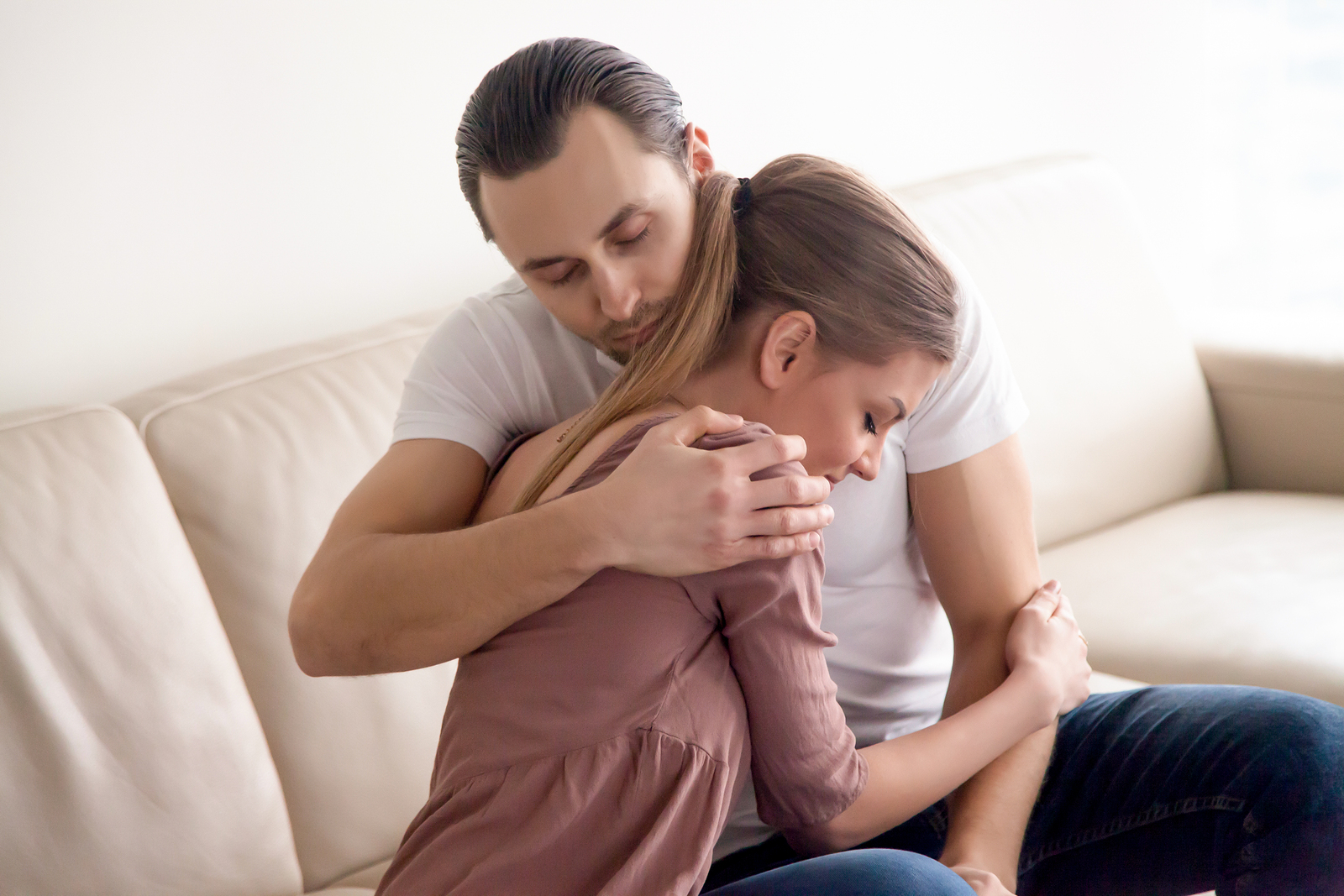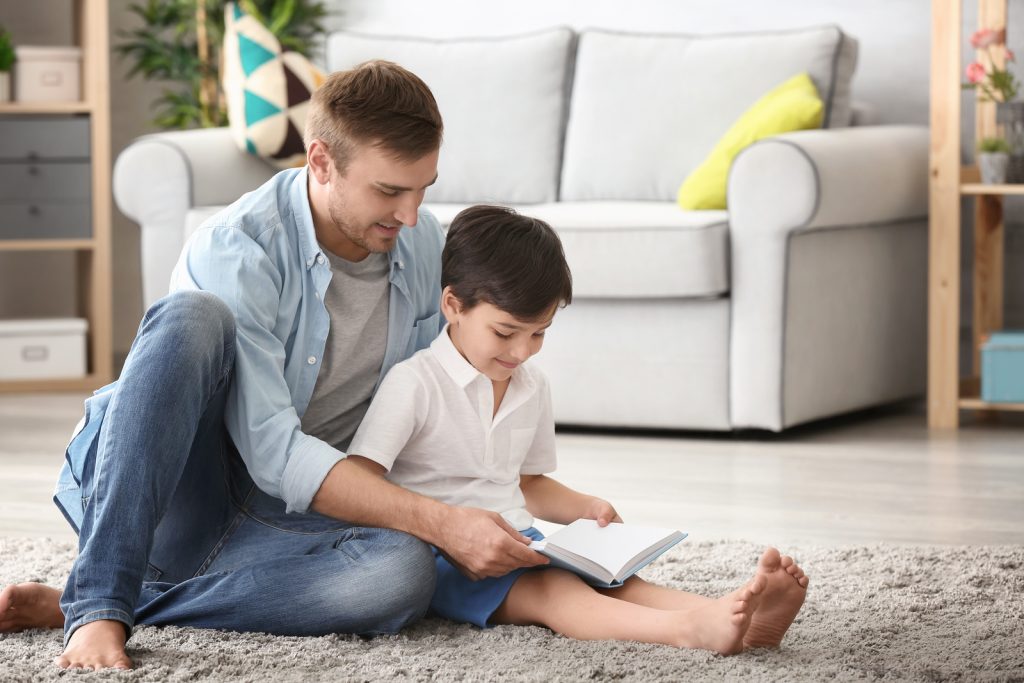
All marriages have their challenges, and supporting a partner with anxiety is common trial couples face. In fact, the American Psychological Association states that 30 percent of American adults will experience an anxiety disorder in their lifetimes, and anxiety disorders are the most common mental health condition.
Thus, many people experience the obstacle of helping a loved one manage an anxiety disorder, although it’s infrequently discussed. If you or your loved one has been diagnosed with generalized anxiety disorder, panic disorder, agoraphobia or a specific phobia, you’re not alone.
In this article, we’ll explore some expert tips and tricks for how to help a spouse with anxiety so you can both minimize your stress and strengthen your relationship.
Supporting a partner with anxiety
While marriage can be a beautiful experience, that doesn’t diminish the very real challenges that can occur for a couple. Anxiety disorders can elevate stress, cause strain to a relationship, impair career and social functioning and exacerbate existing issues a couple is dealing with.
According to the Anxiety and Depression Association of America, living with a loved one who has anxiety means the other partner tends to take on more responsibility in the areas of domestic, financial and parenting tasks. It’s common for these partners to also experience the emotional burden of taking care of the spouse affected by anxiety.
The toll an anxiety disorder takes on a partnership can be taxing. In fact, a study published in the Journal of Abnormal Psychiatry found that the presence of an anxiety disorder was found to decrease marital quality and satisfaction. Living with a spouse who is affected by daily debilitating stress and anxiety is sure to affect even the most well-meaning and kind-hearted loved ones.
Supporting a partner with anxiety should be a two-fold process, and the support should be reciprocated. This means that supporting your spouse necessarily includes ensuring that you get the support you need and that the relationship remains of mutual benefit, of give and take. With each of your abilities will be distinct, no healthy relationship should be one-sided or codependent.
How to help a spouse with anxiety
There are several steps you can take to support your loved one and improve your marriage- for the benefit of your spouse, yourself and your entire family. Here are some tips you can implement to alleviate the suffering of an anxiety disorder.
1. Support areas of high stress
You know your spouse better than anyone else, and therefore have the opportunity to aid by pinpointing areas of high stress and looking for actionable ways to decrease triggers. For example, you may notice that your husband is dealing with an overwhelming number of duties at work. You could offer to help him apply for other jobs, or give him an hour after work to decompress on his own.
2. Find natural ways to reduce anxiety, and do them together
There are many daily practices that can be incorporated into a routine that can promote decreased stress. Some natural ways to reduce anxiety include exercise, mindfulness, prayer and time outside. Consider a daily walk in the mornings to set a relaxed tone for the day.
3. Be attentive to daily triggers
Someone who struggles with an anxiety disorder is triggered by a stimulus that may seem mundane or routine to those who are unaffected. While many of these triggers may seem insignificant, they may be causing significant stress. Having a neutral perspective and identifying behavioral signs of anxiety in your spouse can help you understand the extent of the anxiety. The more you’re aware of your loved one’s triggers, the more easily you can show support.
4. Compromise
Your loved one is likely to struggle with anxiety doing tasks you find enjoyable or necessary. For example, your need for social interaction could feel threatening to your spouse’s mental state. While you shouldn’t sacrifice all your time with friends, you and your spouse will need to balance what is best for both of you. You may need to compromise on a set number of social activities each week or decide which outings feel safest to your loved one.
5. Learn new skills to organize your lives
There are many things that cause stress in our daily lives that can be avoided with proper planning and decision-making. Even for people who don’t have anxiety, managing finances is an area of major stress can that be addressed in a preventative fashion. Creating a budget, paying off debt and investing wisely can reduce stress for both of you, even if you have to invest in learning a new skill to make it happen.
6. Use affirming language
If your partner is facing an anxiety disorder, you’ve likely noticed that negative thought patterns contribute to a cycle of anxiety. Using affirming language when speaking to your spouse can help to negate these damaging thoughts and reverse them in a more constructive direction.
Professional treatment for anxiety
One of the best tips for how to help a spouse with anxiety is by encouraging adequate care. Professional treatment for anxiety often includes therapy, medication and lifestyle changes. While each couple and situation are unique, professional intervention is the most evidence-based method to succeed in reducing anxiety and its symptoms across the board.
High Focus Centers offers programs for outpatient care which vary based on individual needs. With multiple treatment centers across the mid-Atlantic and southeast, High Focus Centers has resources to guide you and your partner through the struggle of an anxiety disorder and reduce the stress and anxiety in your relationship.
Recent Posts
- More Than a Bad Habit: 10 Surprising Addictions and the Mental Health Issues Behind Them
- What Is the Alcohol Use Disorders Identification Test (AUDIT)?
- Is Complaining an Addiction? Understanding the Trap of Victim Mentality
- Understanding Attention Spans: What’s Happening to Our Focus?
- Klonopin Side Effects: Understanding the Risks



